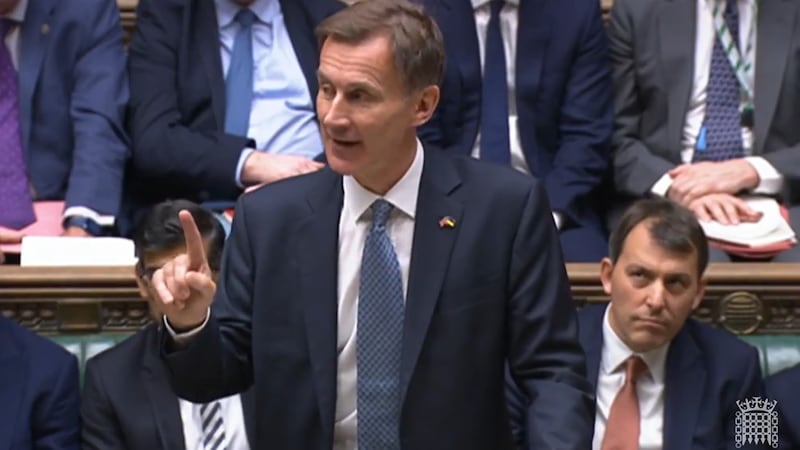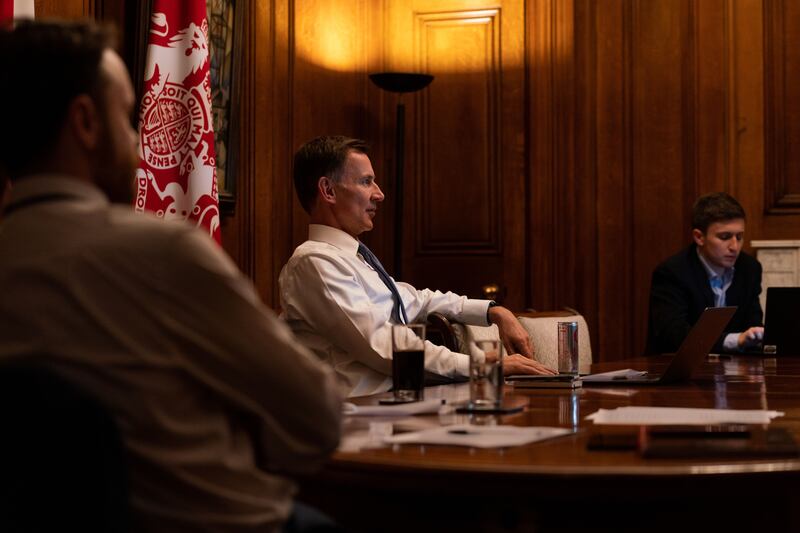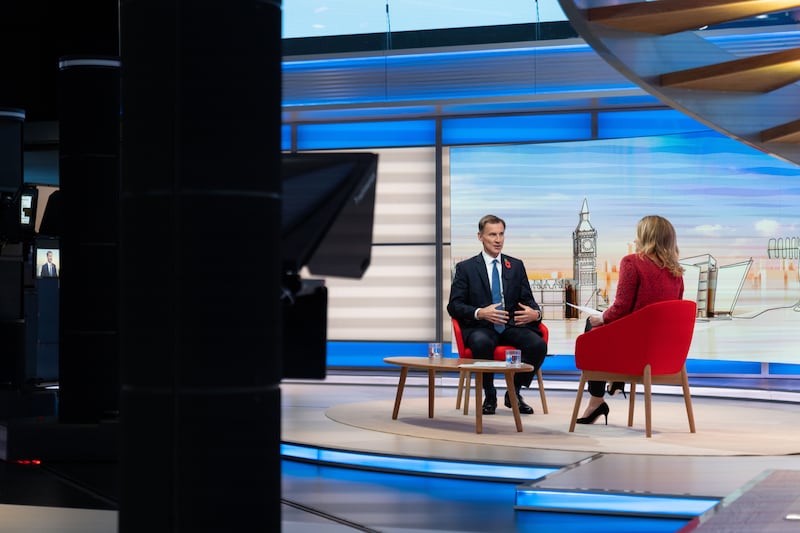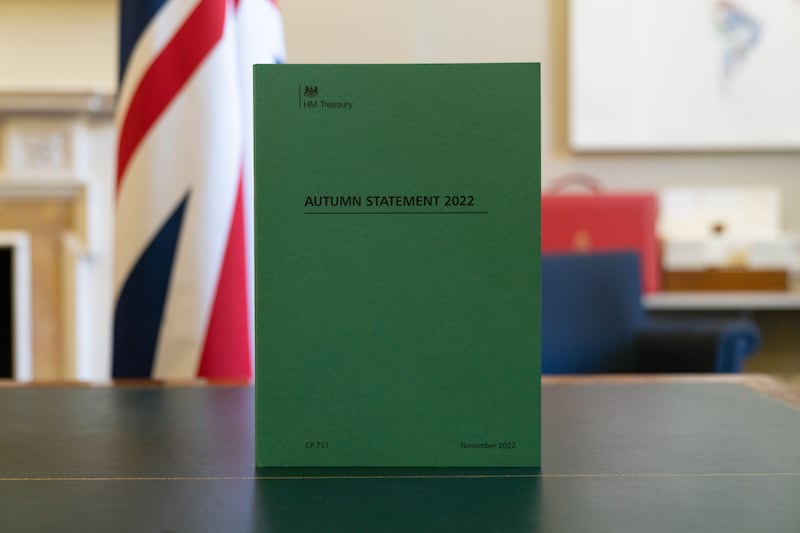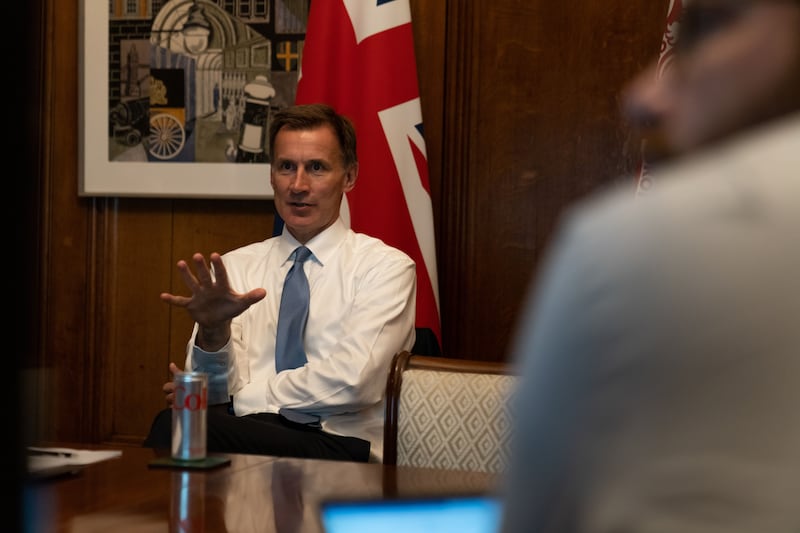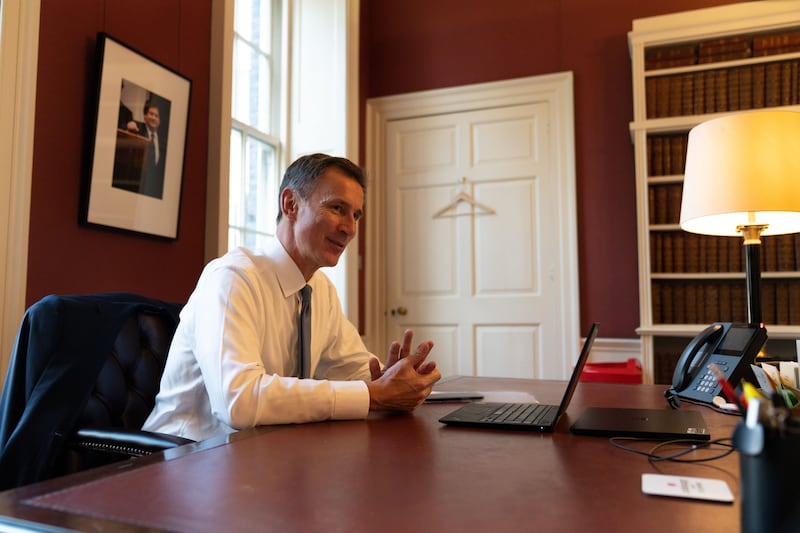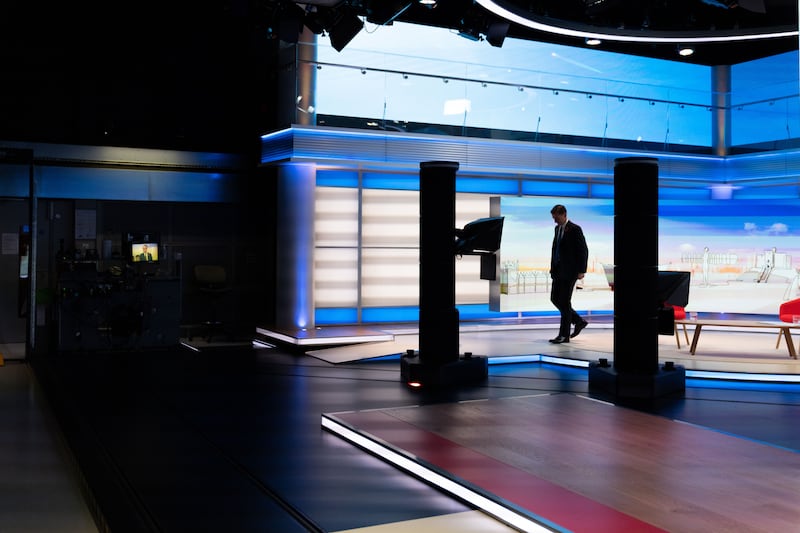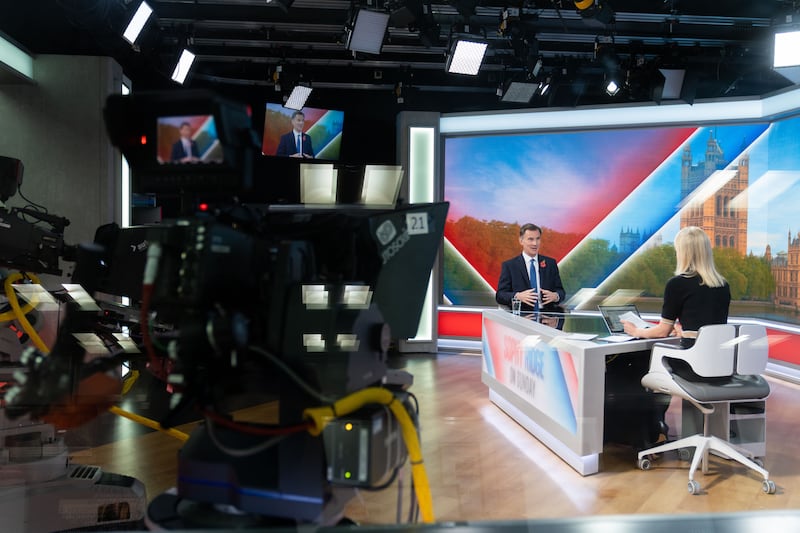“As Conservatives, we don’t leave our debts to the next generation,” Chancellor Jeremy Hunt told the UK Parliament on Thursday as the opposition benches jeered incredulously and Tories remained muted.
It was tacit acknowledgement that Mr Hunt was attempting to pull off the magical trick of stimulating growth in a recession while not cutting back public spending or drastically raising taxes.
His “autumn statement” was the Conservatives’ last gambit to avoid meltdown at the next general election by restoring faith in their economic competence rocked by Liz Truss’s disastrous tax giveaways.
The essential thrust was to shift the real pain of debt and taxation to 2025, when Mr Hunt’s economic stimulation either surmounted the financial challenges or his party was out of government.
If the first trick was to be convincing, Mr Hunt certainly achieved that in his 50 minutes spent detailing the economic road map.
Without histrionics, in a headmaster’s measured manner, he laid out the degree of pain he was willing to inflict while lauding the most optimistic outcomes.
Three ways the UK's autumn statement could affect you
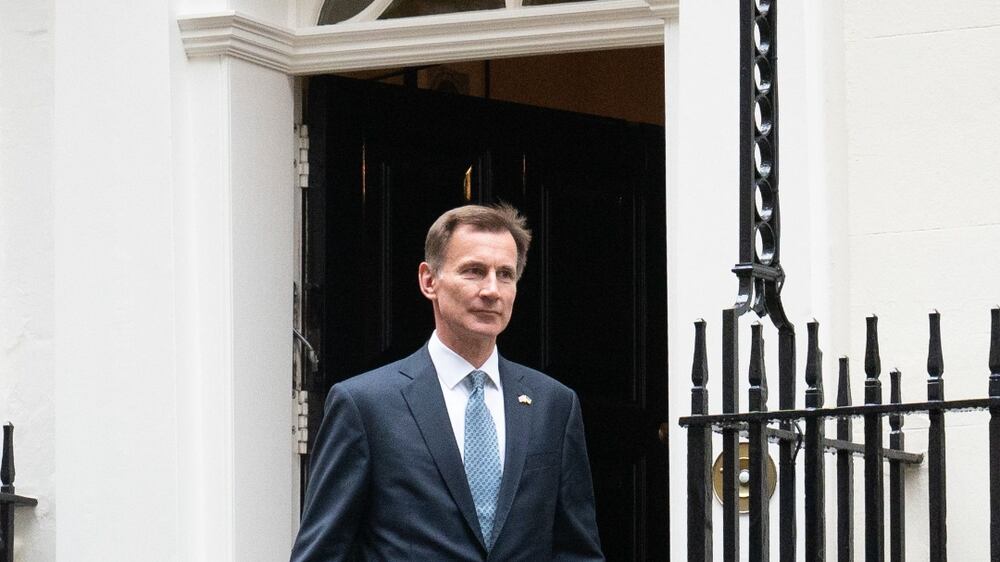
The recession that Britain found itself in, he was quick to point out, was firmly pinned on Russian President Vladimir Putin’s invasion of Ukraine that had led to energy costs in Britain to rise eight-fold to an astonishing £150 billion — the “equivalent to a second NHS”.
It was a “recession made in Russia” but a “recovery made in Britain”, he affirmed, winning a few nods of approval.
Prime Minister Rishi Sunak’s head barely stopped nodding throughout, demonstrating that the former chancellor had been intimately involved in proposals whose importance was such that he had cancelled then reinstated his Cop 27 appearance.
Given the markets’ role in dismantling Ms Truss's stay in No 10, the budget was written with their response at its heart. A measure of Mr Hunt’s success was that there was, unlike his predecessor Kwasi Kwarteng’s fantastical tax generosity, no crumbling of the pound, tumbling of stocks or soaring gilt borrowing costs.
With much of the announcements well trailed in the press, they were as measured as Mr Hunt’s tone and tailored suit.
In addition to Mr Putin, it was the “once-in-a-century pandemic” blamed for Britain’s ailments.
“Brexit!” yelled an MP from the Labour benches, reflecting the point made by financial analysts who suggest breaking from the European Union cost Britain up to 4 per cent in gross domestic product.
“The UK will always pay its way,” the chancellor said, warming up Britain’s creditors before disclosing that the government would be borrowing £140 billion in the coming year.
Looking on were two of the three former prime ministers who remain MPs, with Theresa May furiously taking notes while sitting across the aisle from her nonchalant political nemesis, Boris Johnson.

Ms Truss was not there to hear the unrestrained opposition laughter when Mr Hunt declared that for Conservatives, “credibility cannot be taken for granted”.
Despite their differences, the Labour leadership was astute enough to realise the difficulties Britain faces, listening intently to the economic plan that they will most likely inherit.
Keir Starmer and his team managed to restrain their own nods of approval when the Tory chancellor stated that “those with more will contribute more”, as he introduced earners of £125,000 to the 45 per cent tax threshold previously enjoyed by those in the £150,000 bracket.
The Labour nods were also kept in check as the chancellor shook down the energy firms with a windfall tax increase that Ms Truss blindly refused. Even renewable companies would face a swift 45 per cent levy on their profits.
Electric cars did not escape either, with vehicle taxation coming in 2025 when half the country is expected to be driving them.
Despite the Russian threat, the defence ministry's dreamy thoughts of a 50 per cent increase in promised spending were curtailed when its budget trimmed back to the current 2 per cent of GDP.
And there was no respite for the international aid budget, which would remain at 0.5 per cent rather than its customary 0.7 per cent of GDP.
But Labour’s unspoken agreement ended when Mr Hunt suggested that a proposal to raise money by introducing VAT on private schools might raise £1.7 billion but it would lead to parents sending a further 90,000 pupils into the state sector.
In essence, it was a statement that raised taxes by a further £25 billion, taking them to their highest level since the Second World War as part of the plan to reduce a £50 billion hole in public finances.
With his tax raising job done, Mr Hunt, watched by his wife and son in the gallery above, eulogised Britain’s wizardry of “a national genius for innovation” that might turn it into “the next Silicon Valley” with “Scandinavian quality and Singaporean efficiency”.
His riposte to the cynical Labour jeers was that “they have never been interested in growth”, earning the biggest cheer from his backbenches.
Poorer pensioners and those on benefits will have cheered, too, at the 10 per cent inflation-linked increase in their incomes.
But that rejoicing may well be curtailed if Mr Hunt’s conjuring flops and Britain finds itself weighed down by years of debt and low productivity.
